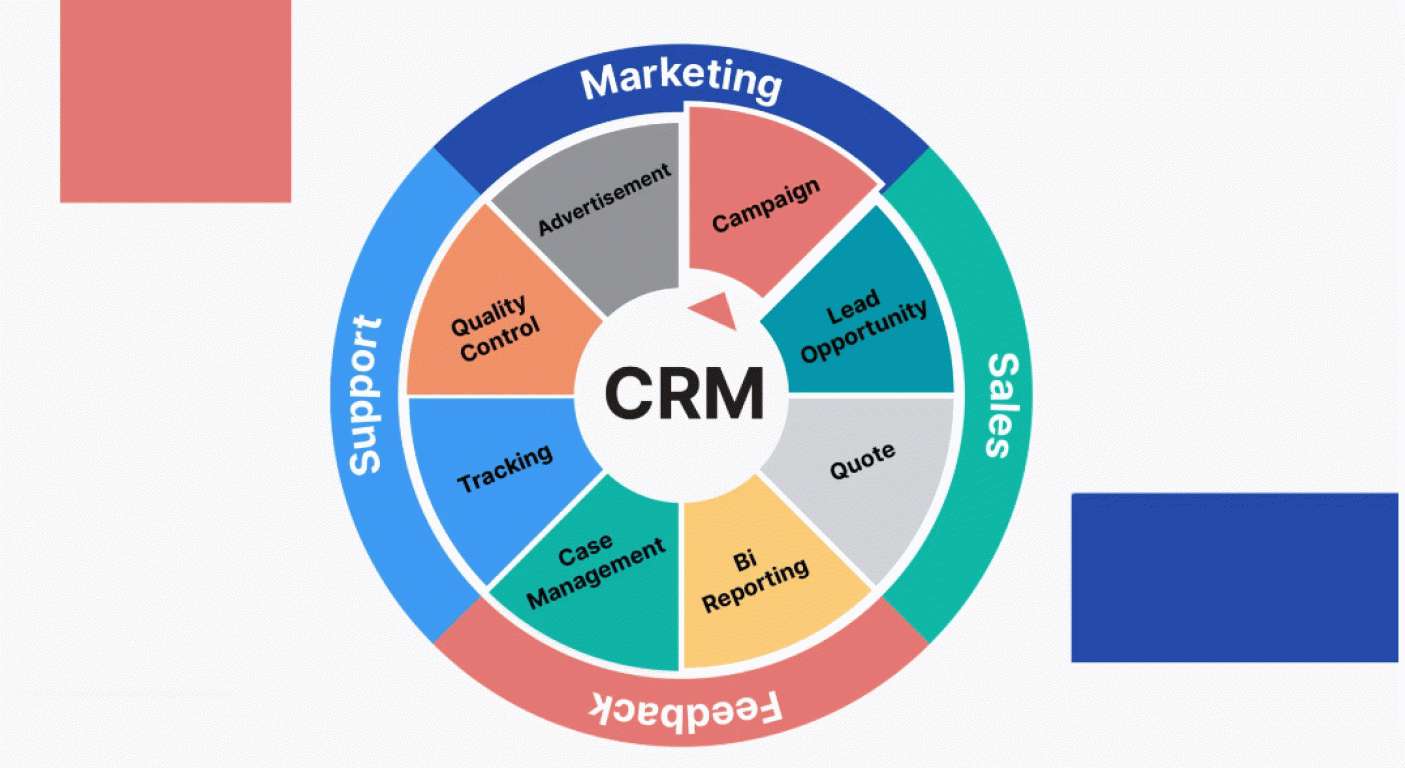What is CRM?
CRM stands for Customer Relationship Management. CRM includes all customer relationship processes in marketing, sales and after-sales services. CRM software is a tool for managing the mentioned processes and keeps all customer data and information in a fully centralized system. Customer information includes all the information of potential and actual customers and other information related to them, such as information on their invoices, the products they have purchased. You can schedule all communications and interactions with customers such as phone calls and meetings in CRM software, and after completing these activities, put information related to the work done and a summary of the conversations in the customer's record. Also, by recording the sales opportunities that exist for each customer, get a clear view of the sales in your business.
By integrating the CRM software with your accounting system or website, you can have all the information in one place and also remove many customer-related workflows from manual mode and do them automatically. For example; The customer can register on your website to receive the catalog and after his information is transferred to the CRM software, a thank you message with a link to the online catalog will be automatically sent to him. Then, the necessary plans to advance the sales process should be recorded and tracked by the sales expert in the system.
It is good to know that the main purpose of using CRM software is to establish a deeper relationship with customers, increase their loyalty and ultimately improve and grow business and profitability.
What is CRM software for commercial companies?
Communication and follow-up are two key elements in commercial companies. CRM software is a tool that helps improve business relationships and make these communications timely and accurate. By using CRM, commercial companies can ensure that the necessary coordination is done between different teams of the organization, including marketing and sales, transportation, finance and administration. CRM helps the sales and marketing team to increase their sales in addition to saving time by facilitating and automating the process of recording leads and sales opportunities, regular follow-up and issuing proforma invoices.
The multitude of tasks, frequent follow-ups, and the complexity of the processes are some of the challenges of commercial companies, which often lead to the loss of customers. By using the CRM of commercial companies, you can easily define your purchase and sale, logistics, import, export and distribution processes in the software and improve the performance and agility of teams by planning and referring activities. Recording all communications between employees and performing customer-related activities on one platform helps business groups to create an effective and long-term relationship with their customers and business partners.
Why buy corporate CRM?
Not having a corporate CRM will result in lost leads and sales opportunities due to information being scattered in different sources. Forgetting tasks and abandoning tasks and not being able to follow the results of assigned activities and lack of coordination and interaction among teams are considered as other effects of not having an integrated coordination system. On the other hand, in the absence of CRM, marketing budgets are spent on advertisements that we do not know how many customers they will bring to us, and it was not possible to manage the costs of advertising and the cost of lost opportunities due to the lack of reliable reports. All these can work hand in hand to lead to the loss of old customers.
Benefits of purchasing a corporate CRM
Having a CRM will give you a centralized database of all sellers and buyers along with a complete history of invoices and correspondence and communication, which will enable team work and interaction between members with the ability to refer tasks. By registering customers' files and planning periodic communications with them, it will be possible to create an effective mechanism to retain customers. Also, in the presence of the CRM system, it will be possible to manage and optimally allocate financial resources to the marketing channels that have the highest conversion rates based on simple and comprehensive reports. With CRM, there will be no more problems such as depending on the sales expert in establishing a strong and lifelong relationship with all customers.
Different parts of a CRM system
Operational CRM software has various parts, some of which, according to Francis Battle, are:
1. Marketing automation
- Campaign management
- Event-based marketing
- Marketing optimization
2. Sales automation
- Management of accounts (customers)
- Management of opportunities
- Management of communication channels
- Call management
- Production of sales proposal, pre-invoice and invoice
- Product definition and custom configuration
3. Service automation
- Management of requests
- Communication management
- Queuing and routing
- Service level agreement (SLA) management and definition
Criteria for choosing the right corporate CRM:
1- The amount of support provided by the software company
2- History and good reputation of the software company
3- The ability of the software to adapt to the work (performance) of the company
4- Software growth and development potential
5 - The price of the software
6- Quality of documentation
7- How the software works
8- Ease of use
9- Ease of implementation (launch)
10-Compatibility with existing hardware





